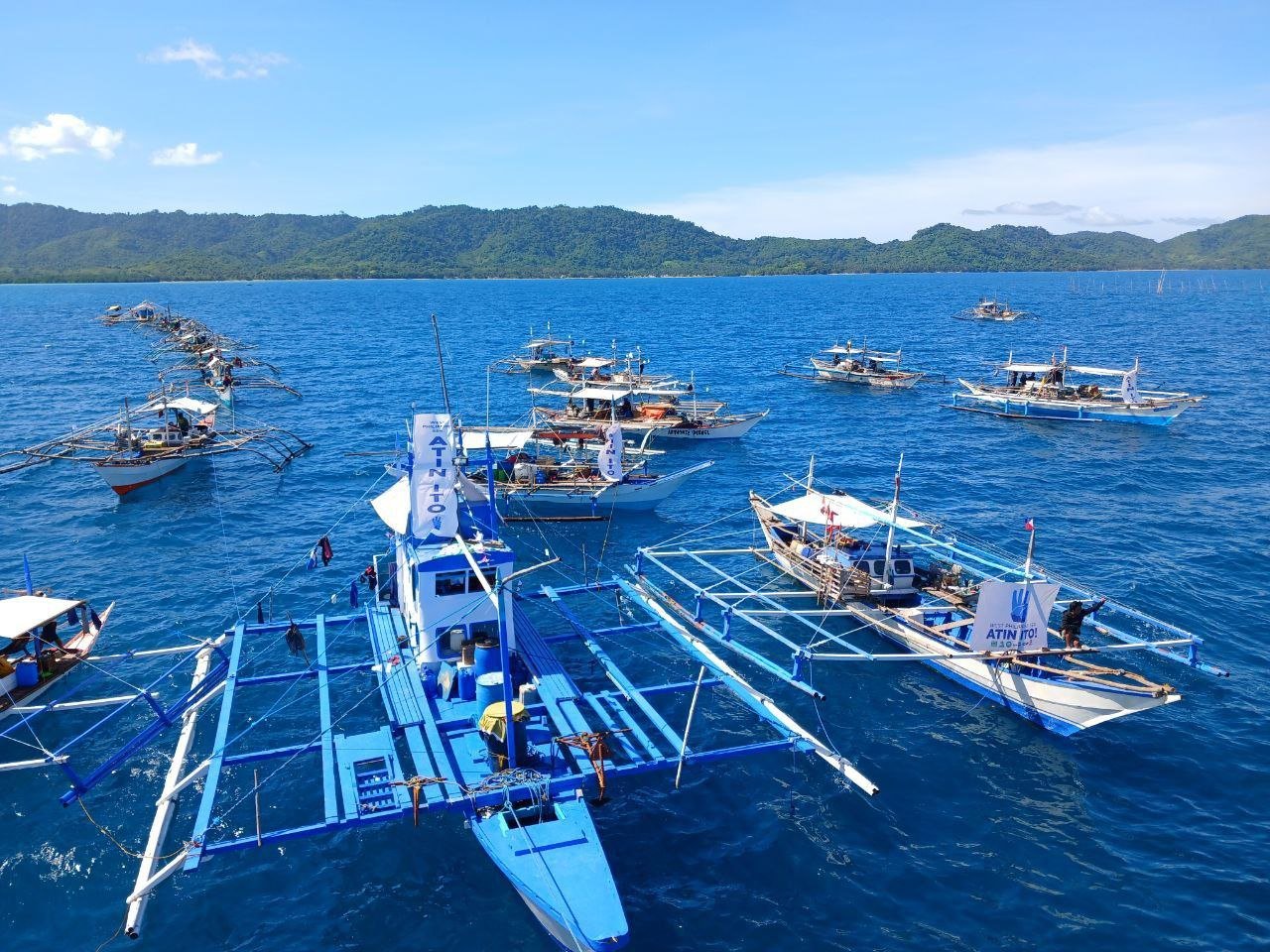
A civilian-led convoy canceled its plans to deliver donated supplies and Christmas gifts to Philippine outposts across the South China Sea after China harassed Philippine vessels near Second Thomas and Scarborough Shoals over the weekend.
Setting off from El Nido, Palawan on Saturday, the Atin Ito Coalition of Philippine civic organizations planned to bring Christmas cheer to Manila’s far-flung outposts and islands in the South China Sea. The convoy reportedly consisted of around 40 civilian vessels and was escorted by three Philippine Coast Guard vessels, including BRP Melchora Aquino (MRRV-9702), one of the largest patrol ships in the Philippine Coast Guard fleet.
First sighting of a Chinese vessel at 4pm, December 10.
Chinese Navy Destroyer Changsa 173 was spotted at around 75 nautical miles west of Puerto Prinsesa. It went as near as 5 nm from mothership M/V Kapitan Felix Oca accdg to Captain Jorge Dela Cruz.@onenewsph @News5PH pic.twitter.com/HwwaSW2oc8
— Gretchen Ho (@gretchenho) December 11, 2023
But after four Chinese vessels, including the 052D Luyang-III class guided missile destroyer CNS Changsha (173), tailed the convoy, the captain of the flotilla’s mothership decided to turn back for Palawan. While the Philippine Coast Guard and Atin Ito Coalition preferred that the Christmas convoy adhere to the plan, the final decision was left to Capt. Jorge Dela Cruz, who commands M/V Kapitan Felix Oca.
The Chinese vessels performed a series of close maneuvers against Kapitan Felix Oca, with People’s Liberation Army Navy warships closing in up to 5 nautical miles from the convoy and a Chinese Coast Guard cutter moving into position to ram the civilian vessel.
While disheartened from their forced return to port, one of the convoy’s vessels, the M/L Chowee, managed to make its way to the Philippine outpost on Lawak Island. The small wooden vessel, similar to those chartered by the Philippine Navy for resupply missions to BRP Sierra Madre (LS 57) at Second Thomas Shoal, evaded Chinese vessels over the night and arrived off the island on Monday morning.
Despite the cancellation of this year’s civilian-led South China Sea Christmas convoy, the Atin Ito Coalition vowed that this is only the first of many missions it would perform in the South China Sea.
Correction: It’s ML Chowee, not MV Chowee.
Atin Ito Coalition said ML Chowee managed to evade several Chinese vessels. It has successfully accomplished delivering supplies in Lawak Island. (Photos from Atin Ito Coalition) @ABSCBNNews pic.twitter.com/puKDa7j8DQ
— Jervis Manahan (@JervisManahan) December 11, 2023
“In fact, we’re already planning another one next year, most probably first quarter of 2024,” Atin ItoCoalition organizer Emman Hizon told the Philippine News Agency.
“This was a success on many levels. This was only the first attempt … expect many more civilian-led supply missions in the near future. It’s a good thing that our mission had full media coverage … the whole world saw how the Chinese are harassing us in our own territory.”
Ray Powell, director of the SeaLight project at Stanford University’s Gordian Knot Center for National Security Innovation, worries that China may look at the Atin Ito Coalition’s withdrawal as a sign that their aggressive tactics work.
“I fear they may take it as the first sign of Philippine weakness in quite a long time, and evidence that aggression can deter Manila,” said Powell.
Collin Koh, a senior fellow at the S. Rajaratnam School of International Studies, told USNI News that he thinks China will tout the Christmas convoy’s cancellation as a “victory.”
“It’ll have been good for the convoy to proceed as planned to demonstrate a whole-of-society Philippine effort to counter [People’s Republic of China] gray zone aggression. But for now, it should be more critical for the Philippines to maintain the official [rotation and resupply] missions, carried out by government SCS defenders, for now,” said Koh.
Koh also emphasized how detrimental it would be for the Philippine government to stop resupply missions to its outposts, as it set a precedent for further Chinese exploitation.
Meanwhile, Beijing and Manila traded diplomatic blows in the fallout of this weekend’s incidents at Second Thomas and Scarborough shoals.
Philippine officials openly questioned China’s goodwill in negotiations after the actions conducted by Chinese maritime forces. President BongBong Marcos declared that the country “remains undeterred” by the Chinese Coast Guard’s actions and further reiterated that “no one but the Philippines has a legitimate right or legal basis to operate anywhere in the West Philippine Sea.”
The Philippines filed a diplomatic protest and summoned the Chinese ambassador amid calls from various Philippine senators to expel him from the country. Senate President Juan Zubiri called China heartless after the damage done to the Philippine vessels.
In response, China’s Ministry of Foreign Affairs claimed that the blame “lies completely with the Philippines” and that the China Coast Guard vessels “were professional, restrained, justified and legitimate” in their response. Beijing also claimed that it was the Philippines that rammed their vessels, contrary to videos taken onboard the Philippine resupply vessels.
The MFA spokesperson also brought up a “promise” from the Philippines to remove BRP Sierra Madre, which the Philippines claims it never made.
In a press meeting, National Task Force for the West Philippine Sea teased that a “new national strategy” with changes to the Philippines’ approach to the South China Sea will be presented to President Marcos, who will then decide whether to implement the changes.
At a Monday press briefing, Pentagon spokesman Maj. Gen. Patrick Ryder pointed to the United States’ obligations under the Mutual Defense Treaty between the U.S. and the Philippines.
“It just again demonstrates irresponsible and unsafe behavior on the part of the PRC, and why it’s important for all nations to work together in that region to ensure that ships and aircraft can sail wherever international law allows,” Ryder said of the incident over the weekend.





